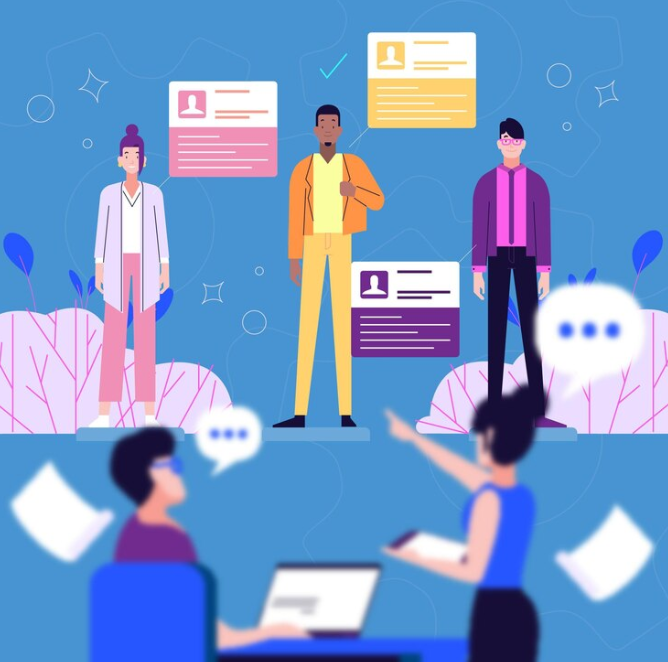In the vast tapestry of today's workforce, two threads stand out with marked contrast: Baby Boomers and Millennials. Born in an era of post-war optimism, Baby Boomers (born between 1946-1964) have witnessed the dawn of the digital age. Millennials (born between 1981-1996), on the other hand, came of age during this digital revolution, amidst the challenges of a new millennium.
For recruiters, navigating the nuances of these two generations is both a challenge and an opportunity. Each brings a unique set of skills, values, and expectations to the table. Crafting a hiring strategy that appreciates these differences while finding common ground is the key to a harmonious, dynamic workforce.
Understanding the LandscapeBefore spaning into strategies, it's crucial to understand the characteristics typically associated with each generation.
Baby Boomers: Loyalty, strong work ethic, and adaptability define this generation. They value personal interaction, appreciate hierarchies, and often prioritize job security. While they've adapted to technological changes, they might not be 'digital natives'.
Millennials: Tech-savvy, value-driven, and advocates for work-life balance, Millennials are redefining workplace norms. They often seek meaningful work, prioritize flexibility, and are comfortable with flat organizational structures.
Strategies to Navigate the Boomer-Millennial Divide1. Customized Communication:
Boomers: Being digital immigrants, they might prefer face-to-face meetings, phone calls, or even emails. Personalize your interactions, emphasizing company stability and opportunities for mentorship.
Millennials: Leverage digital platforms, from social media to specialized job portals. Highlight company culture, growth opportunities, and social responsibility initiatives.
2. Flexible Work Environments:
Boomers: While they appreciate traditional 9-to-5 roles, many are nearing retirement and might be open to part-time roles, consultancy, or mentorship positions.
Millennials: This generation often values flexibility – be it in terms of remote work, flexible hours, or opportunities for sabbaticals.
3. Training and Development:
Boomers: Offer training programs, especially in evolving digital tools. Emphasize the value of their experience while helping them upskill.
Millennials: Continuous learning is key. Provide opportunities for skill development, lateral moves, or even cross-functional projects.
4. Feedback Mechanisms:
Boomers: They often appreciate structured feedback, possibly through annual or bi-annual reviews.
Millennials: Craving real-time feedback, consider implementing regular check-ins or even digital platforms for continuous performance tracking.
5. Compensation and Benefits:
Boomers: While competitive salaries are crucial, benefits like health insurance, retirement plans, or even long-term service awards can be attractive.
Millennials: While they too seek competitive pay, perks like wellness programs, learning allowances, or even office culture benefits (like casual dress codes) can be enticing.
6. Culture Building:
Boomers: Foster a culture that respects experience and hierarchy. Implement mentorship programs where they can guide younger employees.
Millennials: Promote a collaborative, flat structure. Opportunities for group projects, brainstorming sessions, and open communication channels can resonate.
7. Recruitment Platforms:
Boomers: Traditional job boards, industry publications, or even referral programs can be effective.
Millennials: Leverage social media, specialized job portals, or even virtual job fairs.
8. Long-term Vision:
Boomers: With many nearing retirement, consider roles that utilize their expertise without the grind of full-time positions. Think consultancy or advisory roles.
Millennials: Offer a clear growth trajectory. They often seek roles where they can envision a future, be it in terms of upskilling, promotions, or even lateral moves.
Uniting Generations: The Power of Common GroundWhile strategies might differ, it's essential to find common ground. Both generations seek recognition, value meaningful work, and appreciate a supportive work environment. Initiatives like inter-generational mentorship programs or team-building activities can bridge the spanide, fostering mutual respect and understanding.
In Conclusion: Navigating the Waves of Generational DiversityThe confluence of Baby Boomers and Millennials in today's workplace offers a unique blend of experience and innovation. For recruiters, it's like navigating a ship through the confluence of two mighty rivers. While each has its currents and eddies, together they can propel an organization to unparalleled success. Recognizing the strengths of each, respecting their differences, and crafting a strategy that harmoniously blends the two is the hallmark of insightful recruitment.





